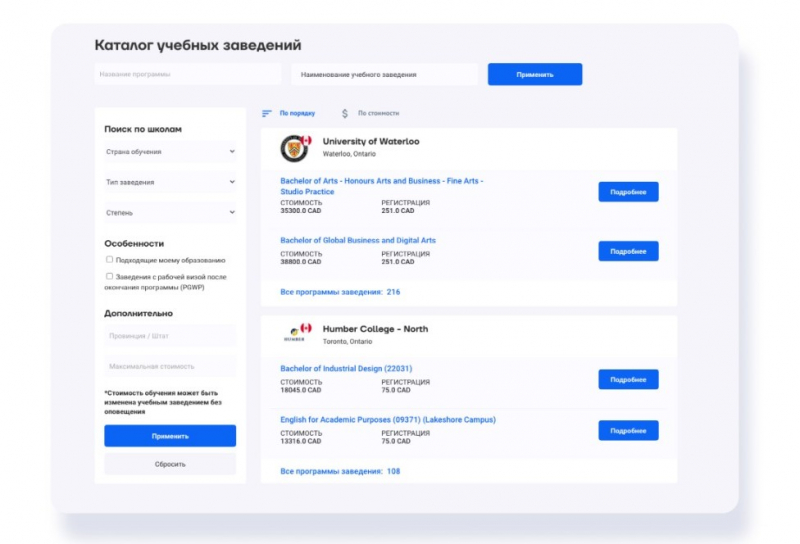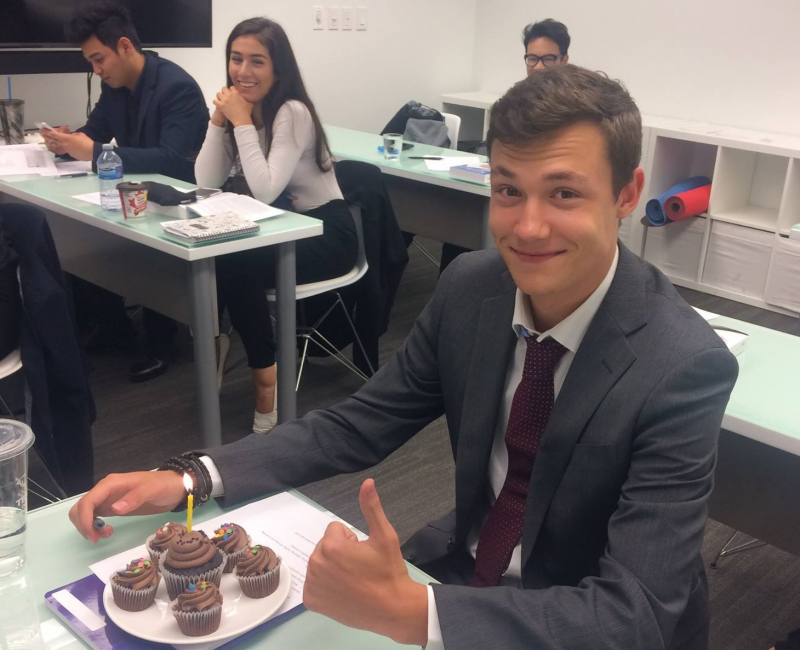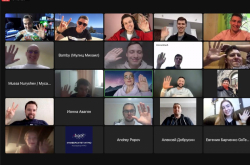Could you tell us more about your project? How did Apply Students come about? And what challenges did you face along the way?
Our company offers international programs and guidance for people wishing to study abroad. We opened our doors last July and started off with people who wanted to study in Canada. It’s much more complicated to get accepted there than to a university in Europe. Canada requires a bunch of documents from prospective students. Within six months of running the business, we came across multiple organizational issues.
The thing is, the process involves lots of different people: a licensed immigration lawyer from the host country, representatives of the chosen school, an adviser, and our company as mediators. And because of that, prospective students don’t have immediate access to all the necessary information. Whether they have questions on fees or obtaining visas, they have to reach out to different people and wait for them to answer.
Besides, lawyers collaborate with certain colleges and universities and receive commissions for their services so they usually have their own interests in the matter. As a result, students get offered the programs that are most beneficial for lawyers. All this hinders our work.

Vladislav Efimov. Photo courtesy of the subject
What do you do about it?
Some time ago, students turned to agencies to help them find the right school. We used to compile a brief questionnaire for our clients and send them back their best choices. Then, we contacted an adviser from the chosen school to get an application form and a list of required documents.
If our client didn’t speak the language of the country they were heading to, then they would need to take a special university course first. After they pass an entrance exam and get enrolled, they would have to take care of the down payment, which amounts to $2,650 in Canada.
Then, we would start to prepare documents for obtaining a student visa. We must bear in mind that the host country may reject certain applications, for instance, from people who decided to turn their lives around – give up construction for hotel business. That’s why we had to figure out the right strategy for each case.
Now, it’s much easier. Once clients submit their applications on the website, managers, advisers, and lawyers come into play. Beyond that point, those specialists can communicate with the student, share documents, and drop their questions in a single group chat. This feature saves us a lot of time and also helps everyone to keep in contact.
What countries are you working with?
At the moment, our platform offers 1,200 universities and over 70,000 programs in Canada, Australia, the USA, and the UK. In the future, we plan to include Spain and the Netherlands, too.

The Apply Students website (in the progress). Credit: applystudents.ru
Did the pandemic affect your business?
In fact, it hardly made any difference. I’d even say it was the other way around. The pandemic brought more opportunities for students: scholarships, program discounts, and time to prepare for applying to university.
Some Canadian schools offer the so-called conditional admission for prospective students. That is, even students who barely speak English can be accepted on the condition that they will boost their language skills and take a special university course during their stay. Until September 2021, it was impossible to study English in the country, so many people had to learn the language online. And, apparently, online learning leads to better results, plus saves lots of time and money.
How long does admission take?
It typically takes around six months. Students have to pick a desired college or university, thoroughly study their requirements, and gather the necessary documents. But, of course, every case is different. It depends on their age, experience, and financial situation.
Is there an age requirement for such programs?
Age doesn’t matter much. However, there are some pitfalls. The authorities may view a 40-year-old with no higher education as a potential emigrant. The same will unlikely happen if a prospective student has graduated from university and decided to pursue their PhD, for instance. Our mission is to convince the authorities that the student doesn’t intend to stay in the country but finish their program and return back home. And the rest is up to them.

Igor Kireev got into the Imperial Hotel Management College in Canada thanks to the Apply Students platform. Photo courtesy of the subject
What do you think about ITMO Accelerator? Was it a rewarding experience for you?
I had always been skeptical about accelerators. There’s plenty of them and each costs a fortune. For instance, it takes half a million roubles to be part of the Skolkovo accelerator. When you think about it, you start to question the value of this experience. So, here your only motivation is money.
But still, I gave it a shot. It was our chance to further develop and scale our project. I enjoyed it. Our mentor Maksim Makarov helped us a lot. We acquired valuable experience in marketing and HR. It was a great boost and a networking opportunity for us, too. We met some of the participants after the program.
What do you plan to do next?
In September, we’re going to start working with Spain and the Netherlands. Then, we’d also like to collaborate with China and what’s more – to promote international cooperation so that more international students could come to Russia.





